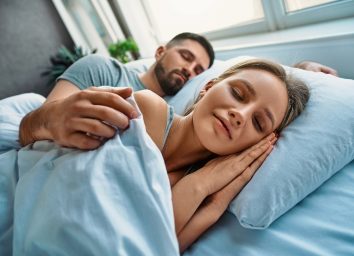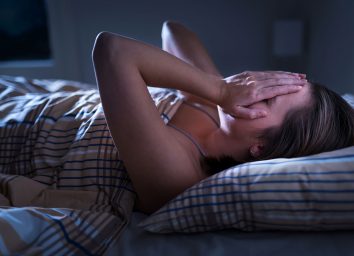One Simple Sleep Trick That Can Change Your Life, Say Doctors
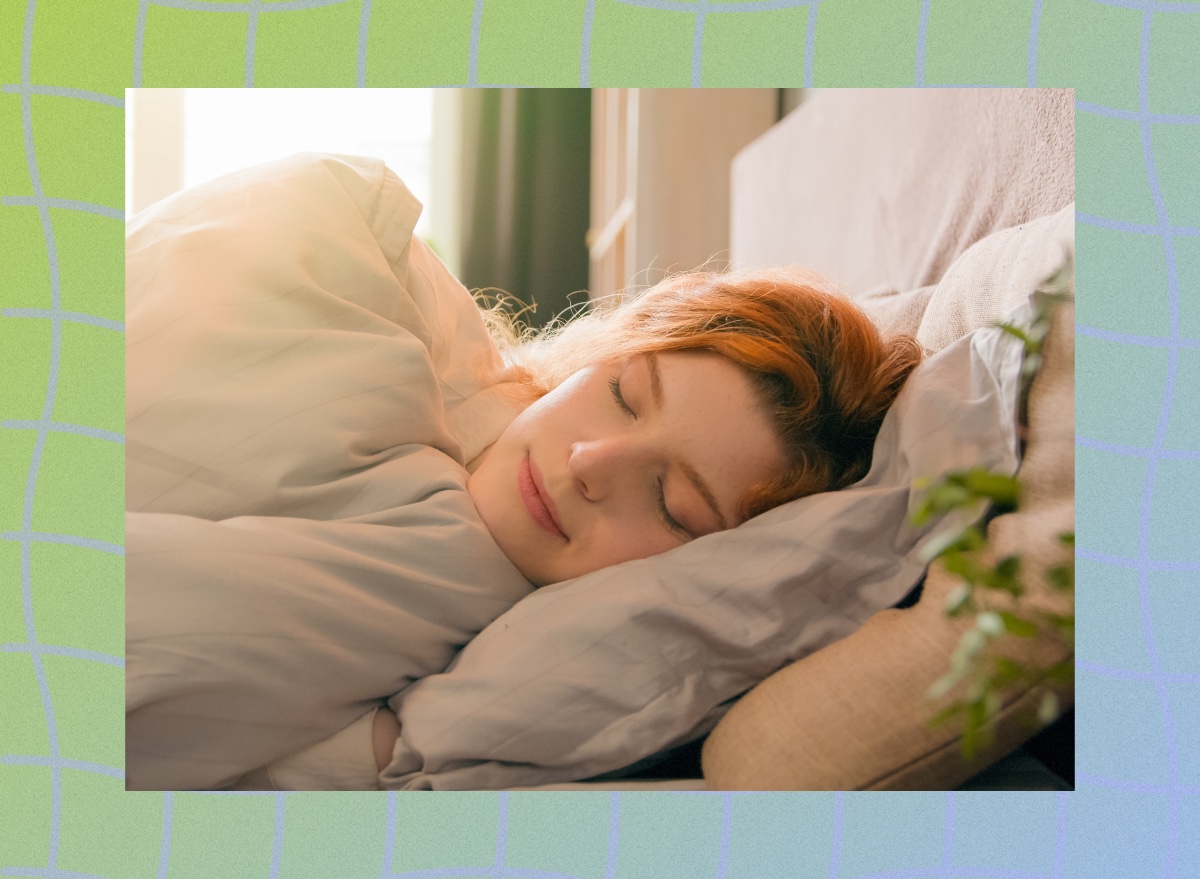
If you’re a person who suffers from pain—back pain, neck pain, hip pain, pregnancy-related pain, or pinched nerves—you know how difficult it can be to get a good night’s rest. This is why your sleep position is crucial for proper rest, especially as you get older. According to the health experts at Keck Medicine of USC, the single worst sleep position? It’s lying on your stomach.
“This position puts the most pressure on your spine’s muscles and joints because it flattens the natural curve of your spine,” observes Raymond J. Hah, MD, a spine surgeon at USC. “Sleeping on your stomach also forces you to turn your neck, which can cause neck and upper back pain.”
But if you’re looking for the ideal positions for sleeping for pain relief—which includes a handy trick you likely didn’t know—read on, because we explain it all right here. And for more ways to sleep better, don’t miss The Sex Position That Secretly Helps You Sleep Better, Says New Study.
The Ideal Position for Sleeping With Pain
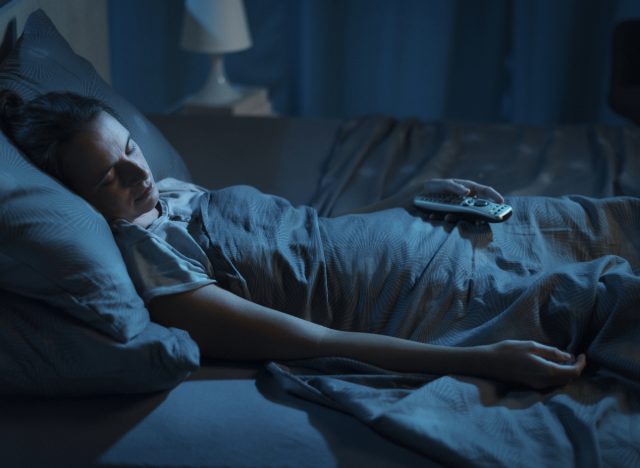
If you suffer from body pain, many leading health experts agree that sleeping flat on your back is likely the best way to go—though some may find it too difficult. “A few strategically placed pillows can boost the benefits of back sleeping,” write the experts at Keck Medicine USC. “A small pillow underneath your head and neck (but not your shoulders) will help keep your spine straight. Adding a pillow under your knees will provide even more support and comfort, as it encourages your spine to maintain its natural curve.”
However, back sleeping won’t work for those who suffer from sleep apnea, who snore, and who may be pregnant. Also, some people just flat-out hate it. “Many people find it the hardest way to enjoy deep sleep,” explain the Keck Medicine experts. “If you’re pregnant, however, you should avoid this position because it decreases blood circulation to the heart and baby.” And for at least one promising way you can try to sleep better starting tonight, see here for The Easy Trick for “Falling Asleep in 5 Minutes” That’s Going Viral.
The Amazing Sleep Trick You Should Try
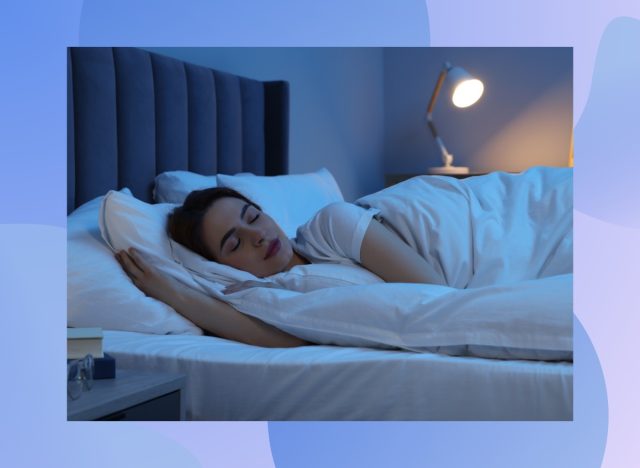
If you find that sleeping on your back doesn’t work for you, you can find more Z’s by sleeping on your side. The handy trick? Put your pillow between your knees. “Side sleepers often hitch their upper leg forward, which causes their hips and back to twist during the night,” observes Greatist. “Adding a pillow between your legs prevents your upper leg from moving forward and reduces stress on your hips, back, and legs.”
Not only that, but placing the pillow between your knees will ensure that your hips, pelvis, and spine all stay aligned all through the night. According to Greatist, sleeping on your side with a pillow between your knees will help assuage back and hip pain, neck pain, sciatica, a herniated disc, and pregnancy-related pains.
If You Must Sleep on Your Stomach
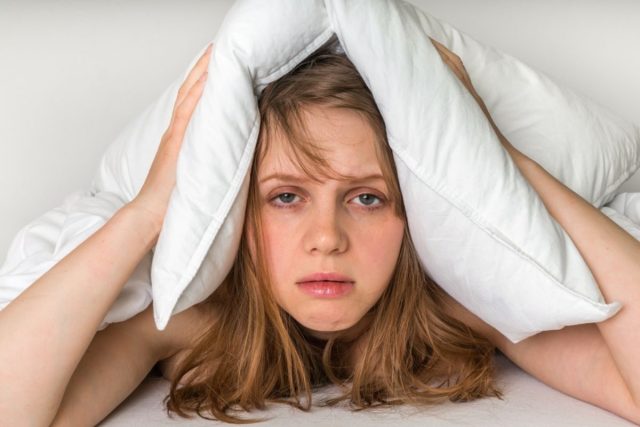
If you’re stomach sleeper, you can place a pillow under your stomach to ensure that your spine is no longer flattened and is in proper alignment. If you do this, the reporters at Healthline note that it may be the only pillow that you actually need. “Depending on how this position feels, you may or may not choose to use a pillow under your head,” they write.
If You Have Other Problems Sleeping
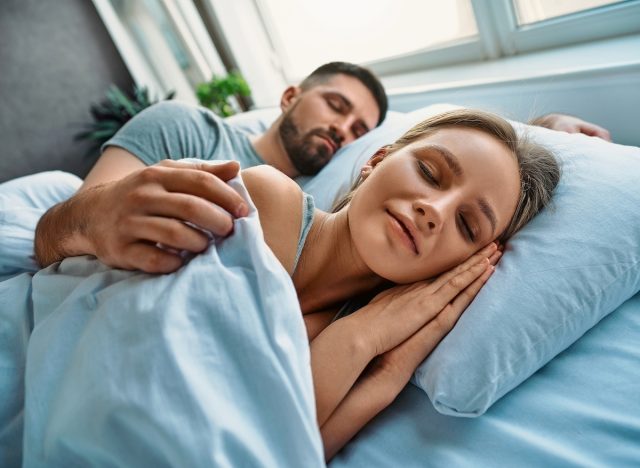
If you’re constantly waking up in the night and having difficulty falling back asleep, the best way to deal with it is to put into practice a concept that sleep scientists call “paradoxical intention,” which requires you to actually embrace being awake without actually trying to fall asleep.
“It encourages you to lie in bed without doing anything to try to fall asleep,” sleep psychologist Katherine Hall, a sleep therapist at Somnus Therapy, once told us. “The idea is to tackle the worry that comes with lying in bed awake and to normalize it in your mind. Once you’ve faced this fear, anxiety reduces and you’ll soon find that you are drifting off to sleep.”
So don’t try to sleep, and be at peace with it. Consider writing in your journal or reading a boring book. “Telling yourself before bed, ‘I’m going to lay here awake and I’m fine with that,’ will help relax an overly anxious brain and will paradoxically make it easier to fall asleep.” Dr. Sujay Kansagra, the director of Duke University’s Pediatric Neurology Sleep Medicine Program, told us. And for some unfortunate ways not getting enough sleep affects your life, see why Older Women Who Do This Have Worse Sex, Says New Study.
